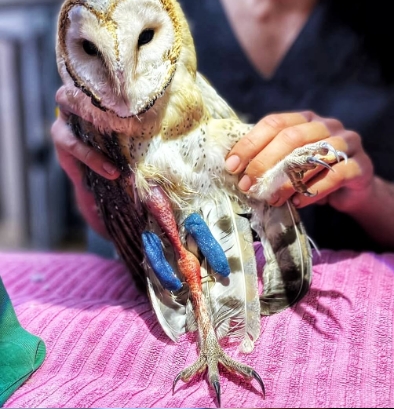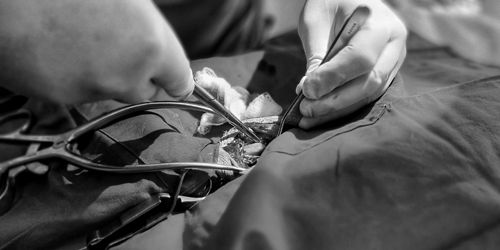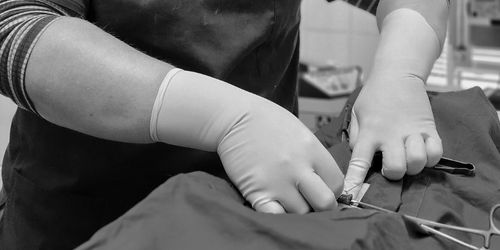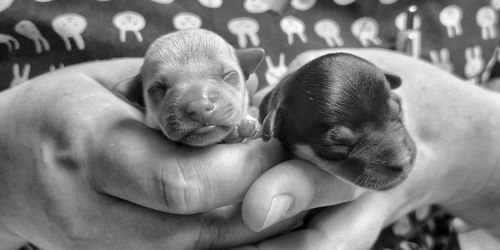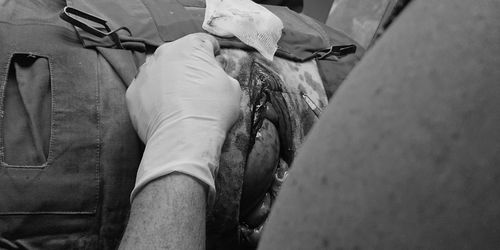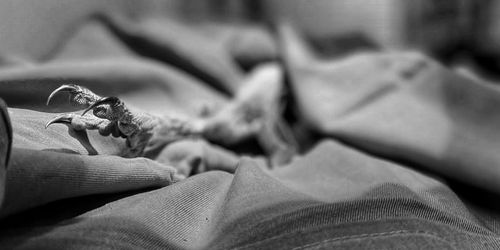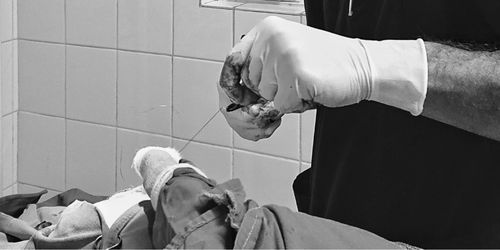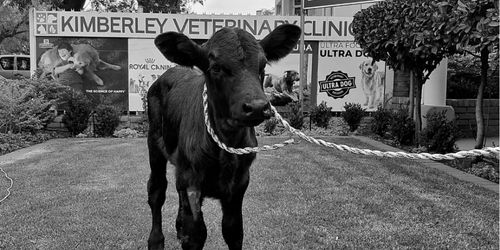Veterinary Surgery Services
At Kimberley Veterinary Clinic we offer a wide variety of surgical services. This includes routine procedures like sterilizations and castrations, more advanced procedures like soft tissue surgery, growth removals, and selected orthopedic surgery.
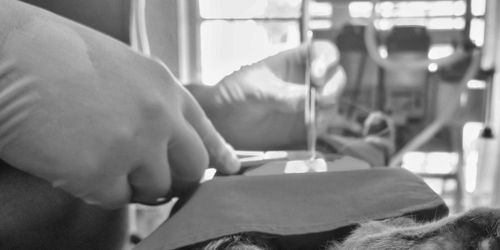
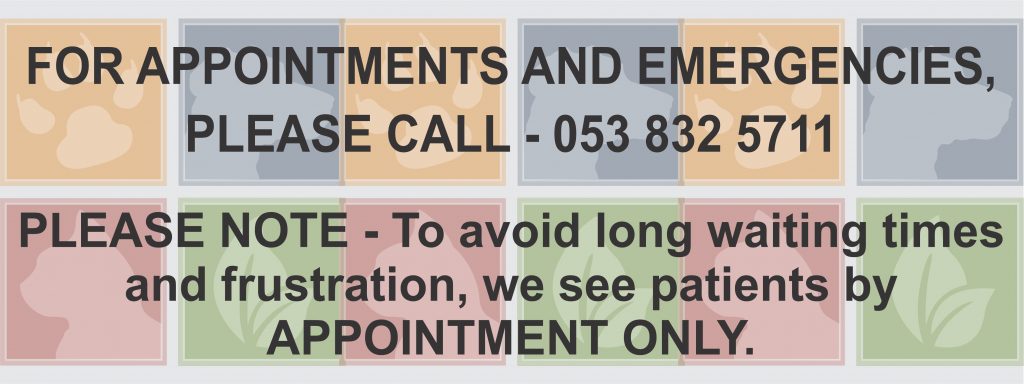
Common age relate ailments in dogs and cats
Sterilisations
Sterilisation refers to the removal of the ovaries in a female and the testes in a male at the appropriate age. It is usually done at around 6 months, but for larger or giant breeds, waiting before sterilization may be recommended.
This is seen as a routine procedure in South Africa and comes as highly recommended in pets that will not be used for breeding purposes.
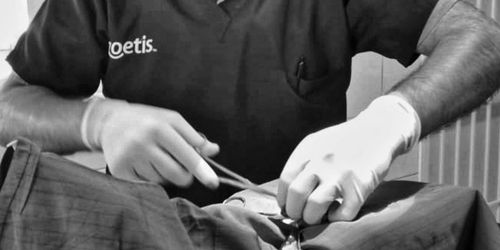
Spaying and Neutering Your Pet
By sterilising your pet, you help prevent uterine infections and breast tumours, which are malignant or cancerous in about 50 percent of dogs and 90 percent of cats. Spaying your pet before her first heat offers the best protection from these diseases.
Your spayed female pet won’t go into heat. Female cats in heat will yowl and urinate more frequently—sometimes all over the house.
Spaying your pets is also highly cost-effective. The cost of your pet’s spay surgery is far less than the cost of having and caring for a litter!
Early neutering helps curb many undesirable behavioural problems. Unneutered dogs and cats are more likely to mark their territory by spraying strong-smelling urine all over the house.
Castration may curb aggression. Male aggression is influenced by the levels o f the male hormone testosterone. High levels of testosterone have been shown to cause aggression in dogs and cats.
In addition, un-neutered male cats have the tendency to be more aggressive to their owners. Fighting male cats are also more likely to acquire diseases due to roaming.
Your male pet will be less likely to roam away from home. When free to roam, they risk being hit by cars, fighting with other males and contracting communicable diseases.
Neutering your male companion also prevents testicular cancer and some prostate problems.
The Quality of Life Question We All Should Be Asking
Caesarean Sections
The normal gestation period of a dog is around 64 days from conception. Signs of impending labour include restlessness and nesting behaviour, she will have a very low appetite about 24 hours prior to labour. There may be a mucoid discharge and she may lick her vulva. These occurrences are all normal.
When must you be worried about complications?
- If your pet ‘s contractions last longer than 45 minutes before the first puppy.
- If there is a green discharge from the vulva before the first puppy is born.
- If there is more than 4 hour gaps between consecutive puppies.
- If your pet shows signs of extreme fatigue, pain or continuous vomiting.
- If there is excessive bloody discharge from vulva.
Elective c-sections can be booked should it be indicated (larger than average puppies, only a single pup, conformation abnormalities and certain medical conditions)
It is recommended that dogs have no more than three c-sections during their breeding period. More than that can cause serious health repercussions for both mom and babies.
Read More About MEDICAL TOTTOOING In Pets
Read More About Grieving Pet Loss
Read About Spirocercosis
Selective Orthopaedic and Soft Tissue Surgery
Our clinic offers basic orthopedic procedures like amputations, jaw fractures and femur head-and-neck resections.
We also offer a variety of soft tissue surgery such as growth removals, hernia repairs, GIT surgery and bladder surgery.
This is not an exhaustive list, so if your pet requires a specific surgery, be sure to contact us and schedule an appointment with one of our veterinarians.
If we are unable to assist you, we have a list of referral practices on speed dial.
Evaluation and Treatment Plans
Routine Checkups
What You Need to Know About Your Appointment
A list of your pet's medicines
Aenean eu leo quam. Pellentesque ornare sem lacinia quam venenatis vestibulum
Pet Medical History
Aenean eu leo quam. Pellentesque ornare sem lacinia quam venenatis vestibulum
Your Pet's Pain Score
Aenean eu leo quam. Pellentesque ornare sem lacinia quam venenatis vestibulum
Read More About Cancers Associated With Old Age In Pets
Make an online appointment today!
Fill in this form to request an appointment. Reception will contact you to confirm the time and date.
Or call — 053 832 5711
10 Tips For Keeping Your Pet Healthy
Read On Our Blog

